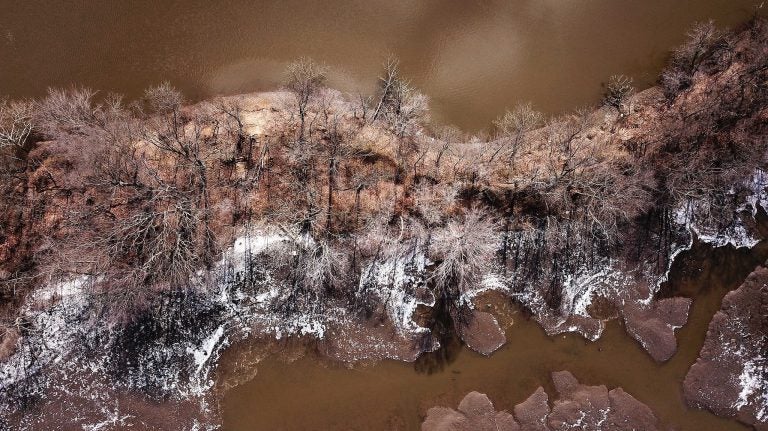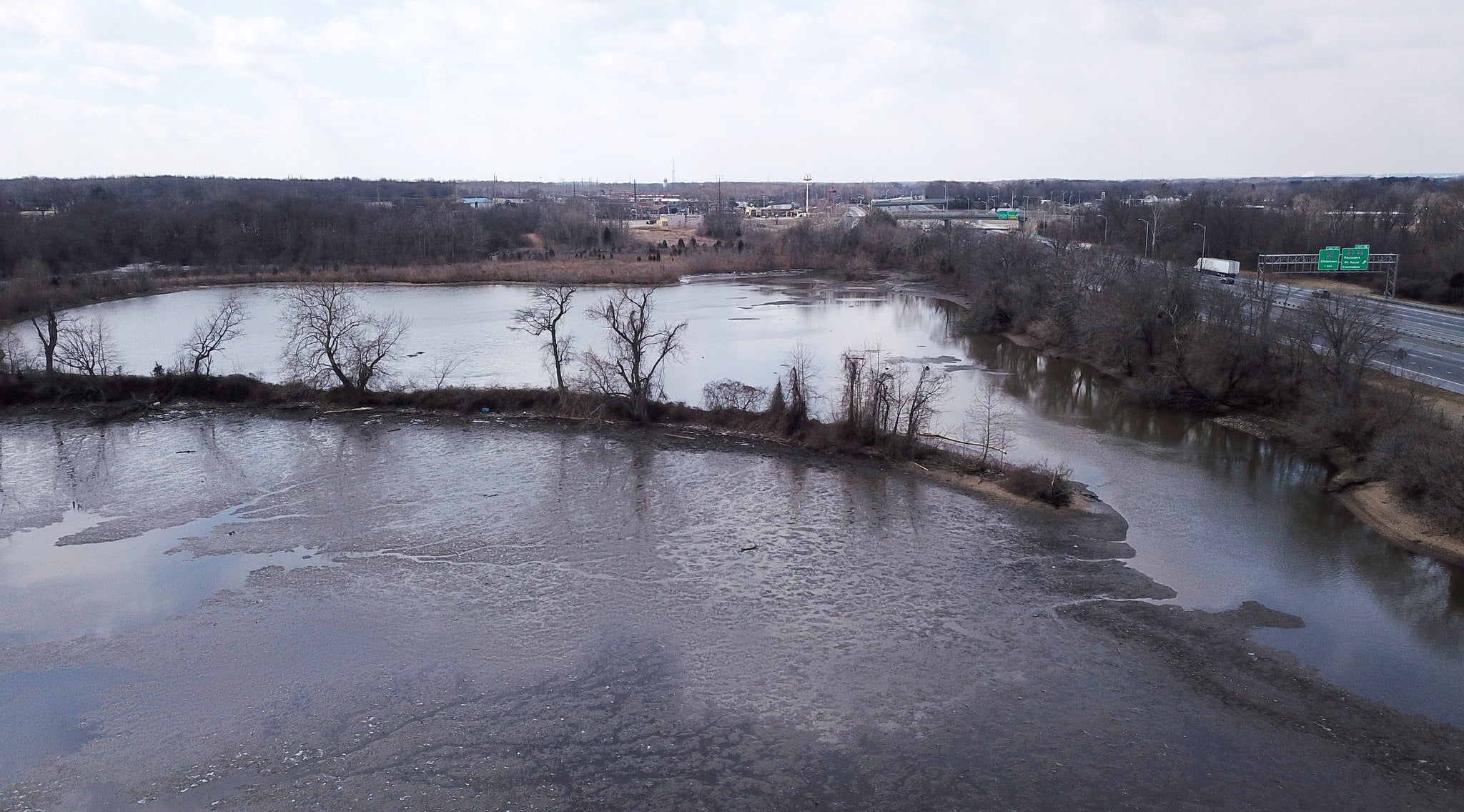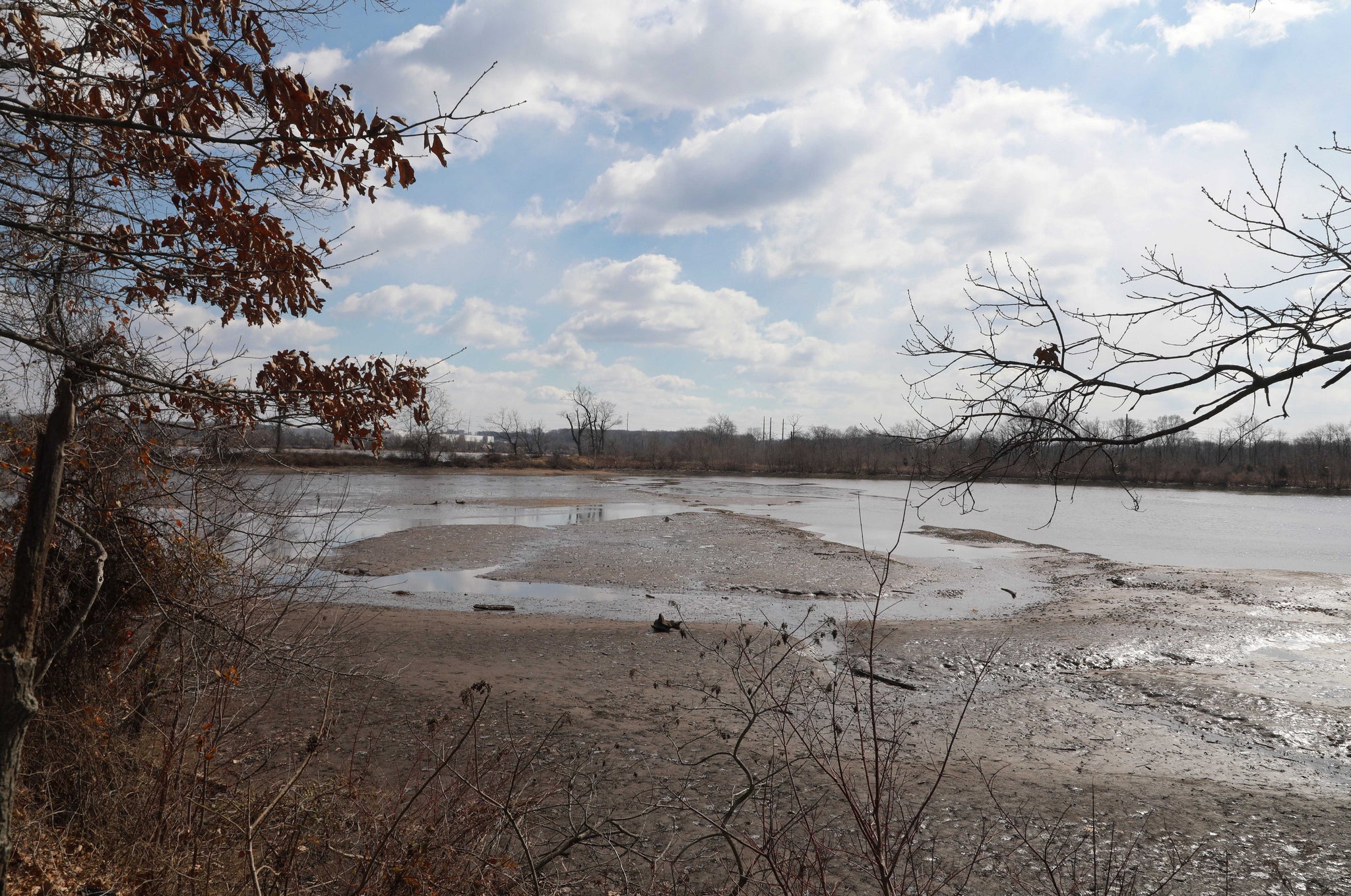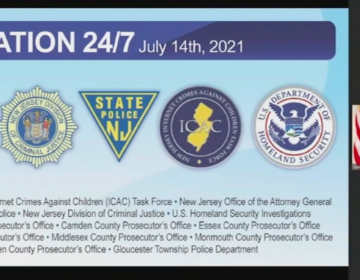N.J. AG takes aim at ExxonMobil over polluted Gloucester County site
The state is once again going after ExxonMobil to clean up and pay to restore once pristine natural areas, in this case a 12-acre site in Gloucester County.

Attorney General Gurbir Grewal filed a six-count lawsuit against ExxonMobil, alleging the company is liable for harmful contamination found on and around its 12-acre-plus Lail property in Paulsboro, N.J. on Wednesday, March 6, 2019. (Tim Larsen/Office of the Attorney General)
The state is once again going after ExxonMobil to clean up and pay to restore once pristine natural areas, in this case a 12-acre site in Gloucester County where drums of industrial products and other contaminants were dumped.
In a six-count lawsuit filed by the Attorney General, the state is seeking natural-resources damages against the oil giant. Previously, during the administration of former Gov. Chris Christie, New Jersey had settled an NRD suit against ExxonMobil for $225 million for causing massive pollution problems at its former refineries in Linden and Bayonne and other facilities.
The latest court action is the fifth NRD case brought by Attorney General Gurbir Grewal and the state Department of Environmental Protection since the beginning of 2018 when Phil Murphy took over as governor. It marks a much more aggressive stance to force polluters to restore damages to drinking water, surface waters, and animal and marine life. No new NRD lawsuits were brought during Christie’s eight years in office.

‘…going to bring the hammer down on polluters’
“We’re going to bring the hammer down on polluters and hold them responsible for the damage they’ve caused in the Garden State,’’ Grewal said. “We have strong laws on the books to require companies to clean up their mess, and we’re going to keep using them.’’
The latest litigation focuses on industrial dumping on a 12-acre property in East Greenwich and Paulsboro dating back to the 1950s. The disposal of drums containing petroleum products and other hazardous materials polluted soil, surface and ground waters, wetlands, and fish, according to the state.
The contaminants included materials identified as aluminosilicate, a source of PCBs, piled nine feet thick in some areas. PCBs, or polychlorinated biphenyls, were banned in 1979 after research found the material, commonly used in manufacturing and commercial operations, caused multiple health risks, including cancer in humans and animals.
Despite some cleanup efforts at the site over the years by ExxonMobil, there is still evidence that groundwater, soil, sediments and other ecological resources remain contaminated with the toxic compound. In its 41-page lawsuit, the state noted advisories have been issued against eating fish contaminated with PCBs in the Delaware River Basin because of elevated concentrations of the pollutant in fish tissue.
ExxonMobil had a consultant do a study nine years ago to evaluate risks from the contaminant. It concluded past cleanups had eliminated the primary and ongoing source of PCBs in both soils and sediments at the site. But the consultant found that even 23 of 30 small mammals found at the site had detectable levels of PCBs in their tissues.

Christie’s settlement
The previous case against ExxonMobil settled perhaps the largest NRD case ever brought by New Jersey against a company. Initially, the state sought $8.9 billion in natural-resource damages, stemming from widespread contamination of more than 1,000 acres of marshes, waters and land at refineries in Linden and Bayonne.
The Christie administration settled the case for $225 million, prompting an outcry from environmentalists, legislators and local officials. At the time, Christie officials defended the agreement as the single largest NRD settlement in state history. The administration also came under fire for diverting money from the case to help balance the state budget.
Since then, voters have approved a constitutional amendment preventing diversion of any future NRD settlements away from cleaning up and restoring areas damaged by pollution. Meanwhile, lawmakers have convened a process aimed at establishing standards to ensure the state obtains aggressive settlements as originally contemplated in the initial ExxonMobil case.
“Clean and thriving wetlands, sediments, ground and surface waters are critical to healthy ecosystems, and where they are harmed, DEP will work with the Attorney General’s office to bring a case for natural resource damages,’’ said Department of Environmental Protection Commissioner Catherine McCabe.
The Attorney General’s office did not specify what damages it is seeking, because the state must investigate further to determine how much damage has occurred.
WHYY is your source for fact-based, in-depth journalism and information. As a nonprofit organization, we rely on financial support from readers like you. Please give today.



